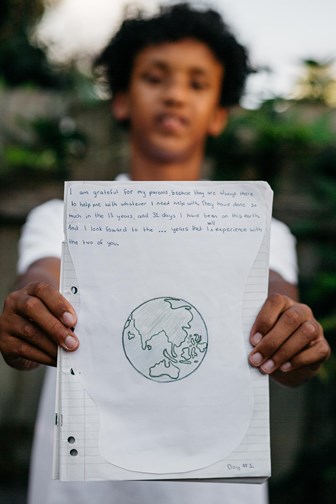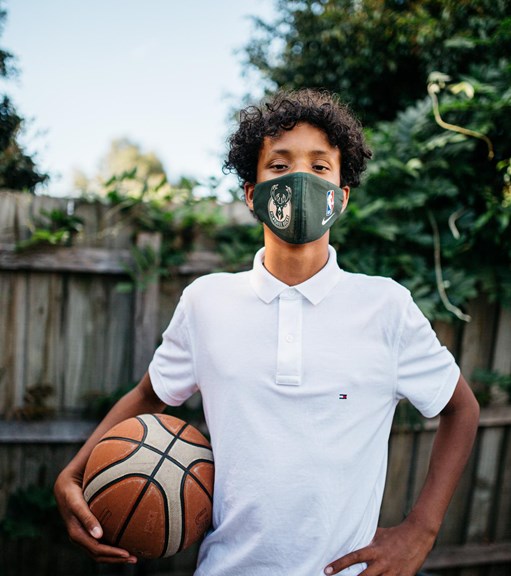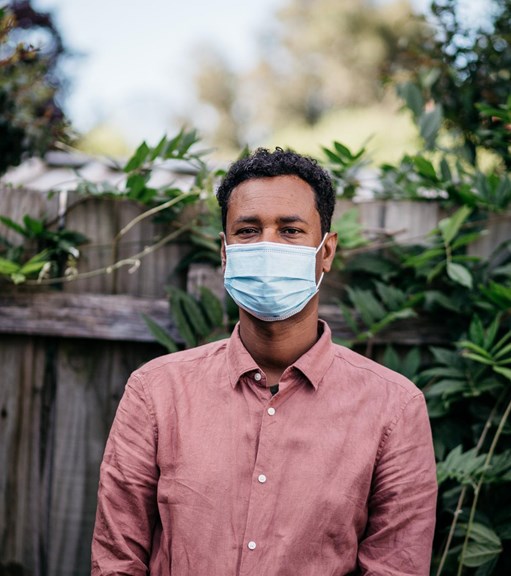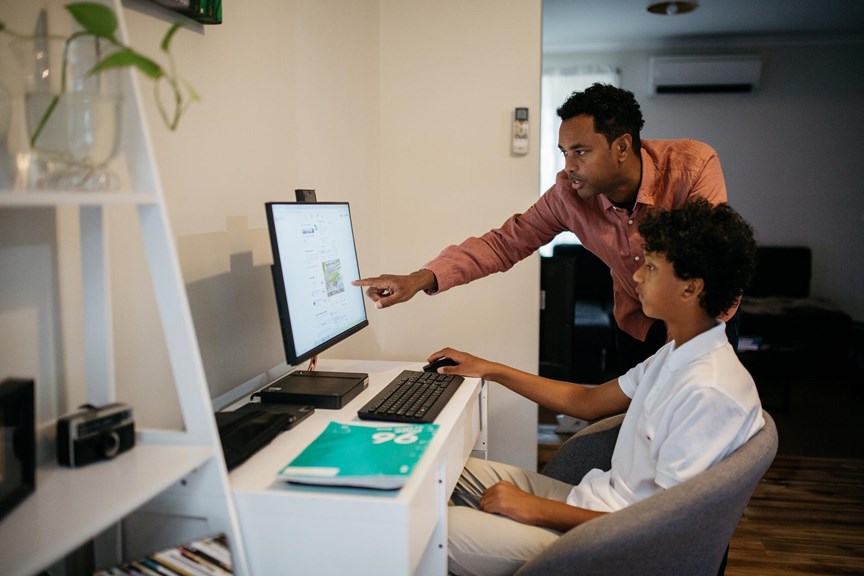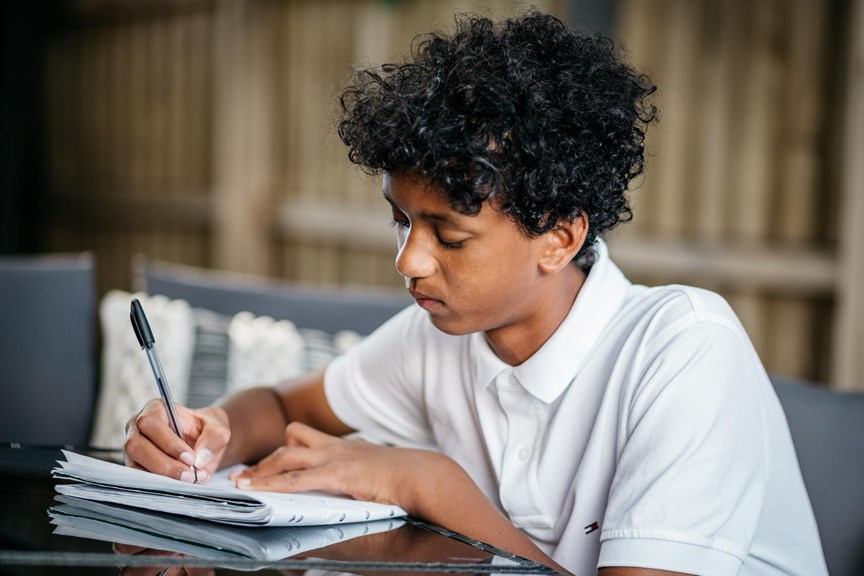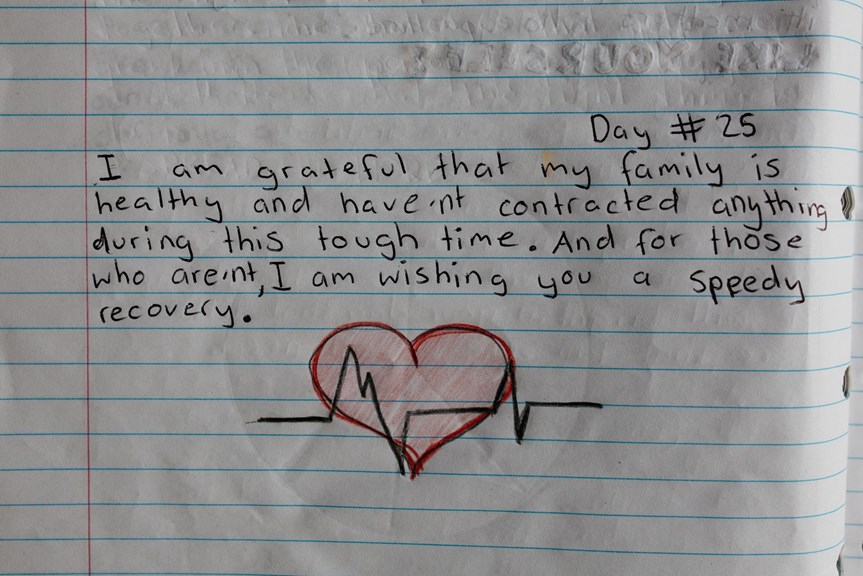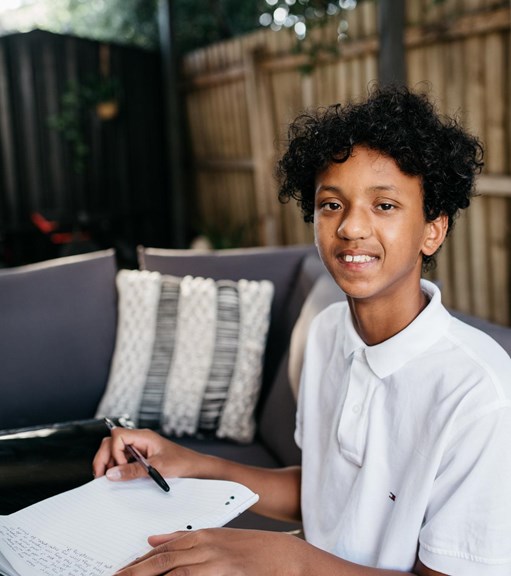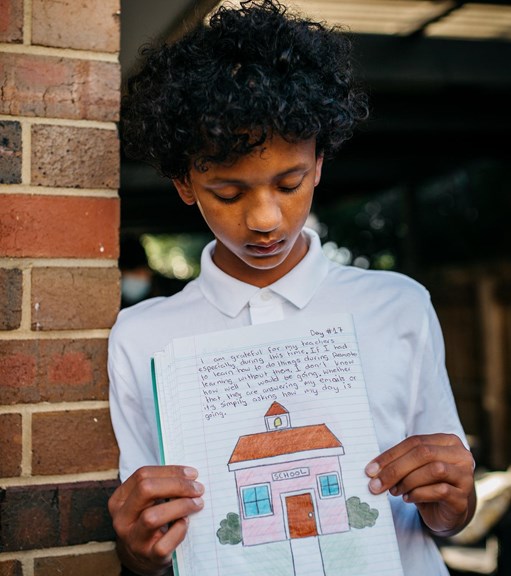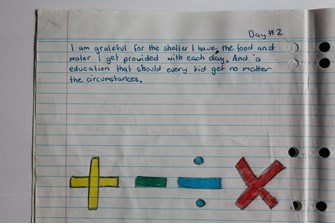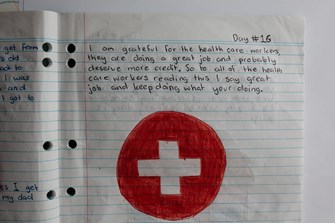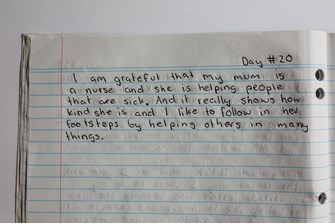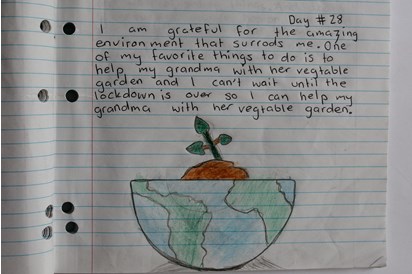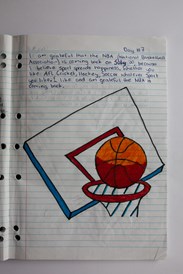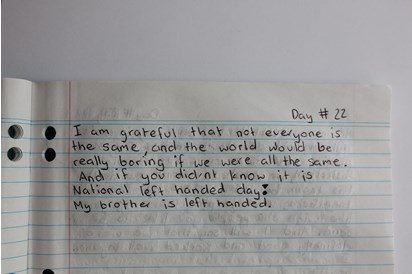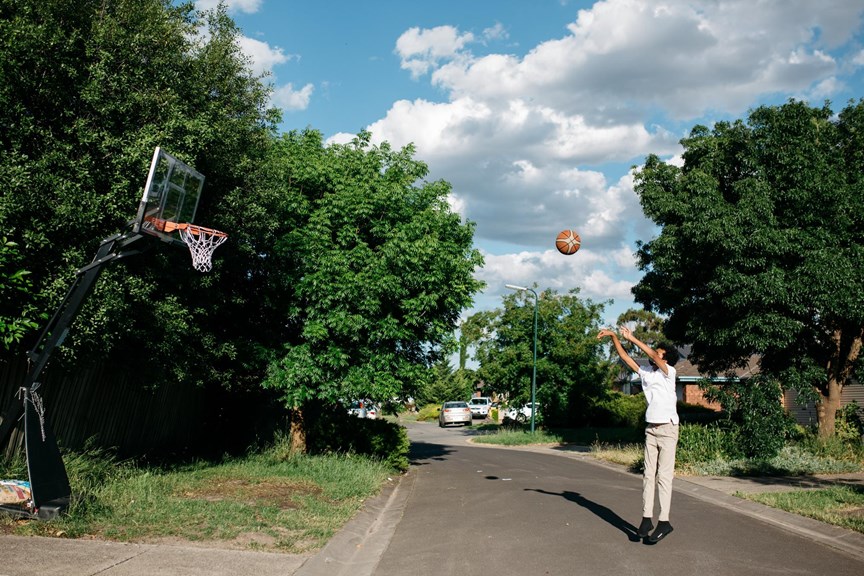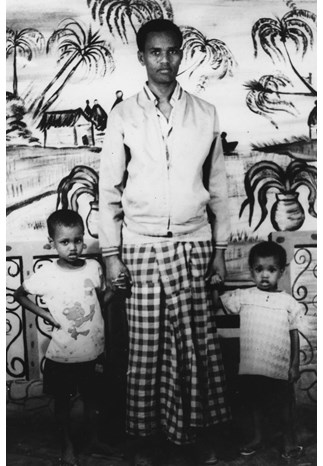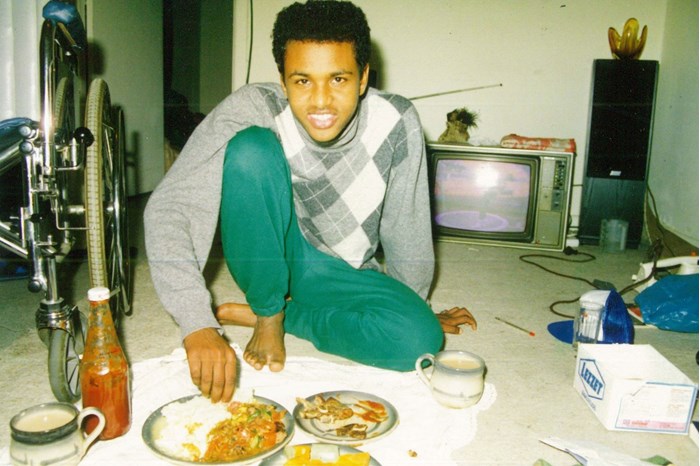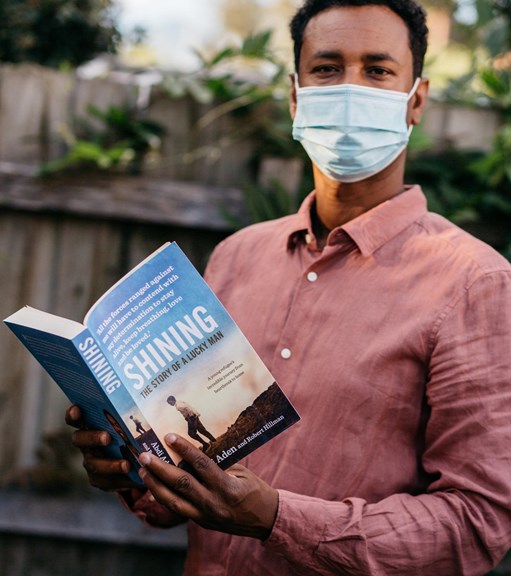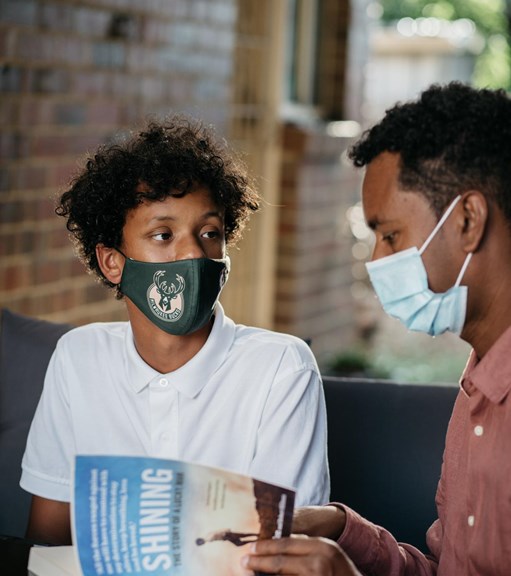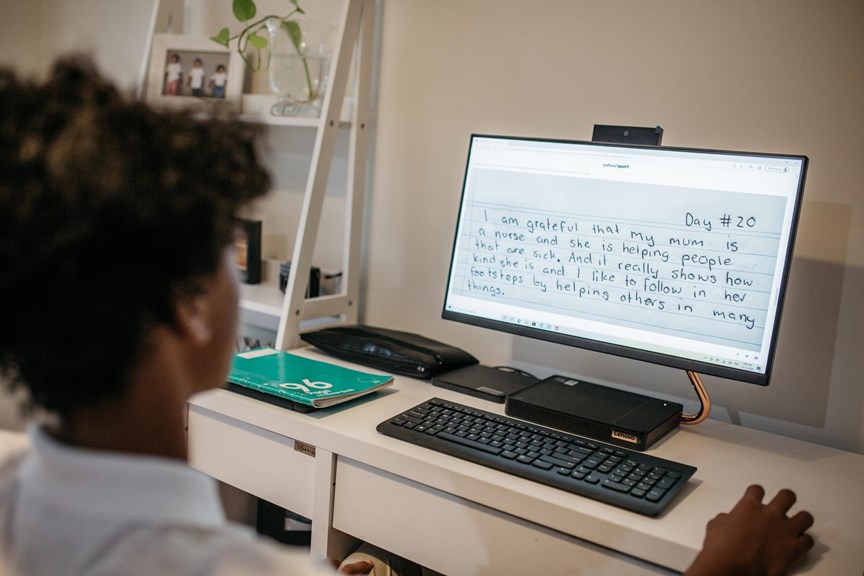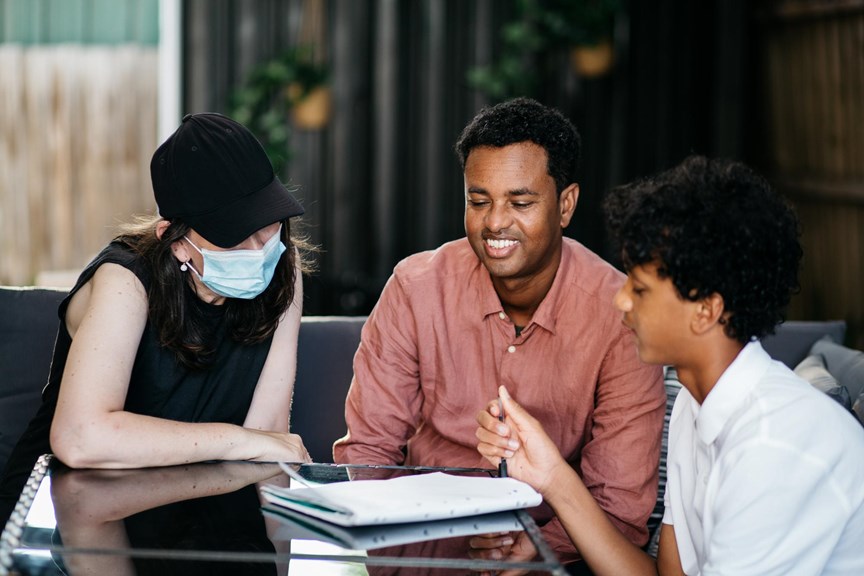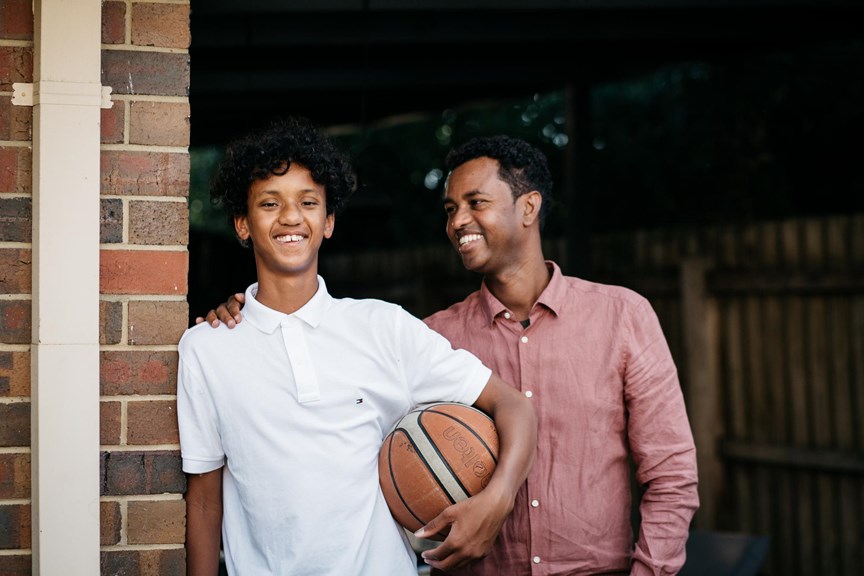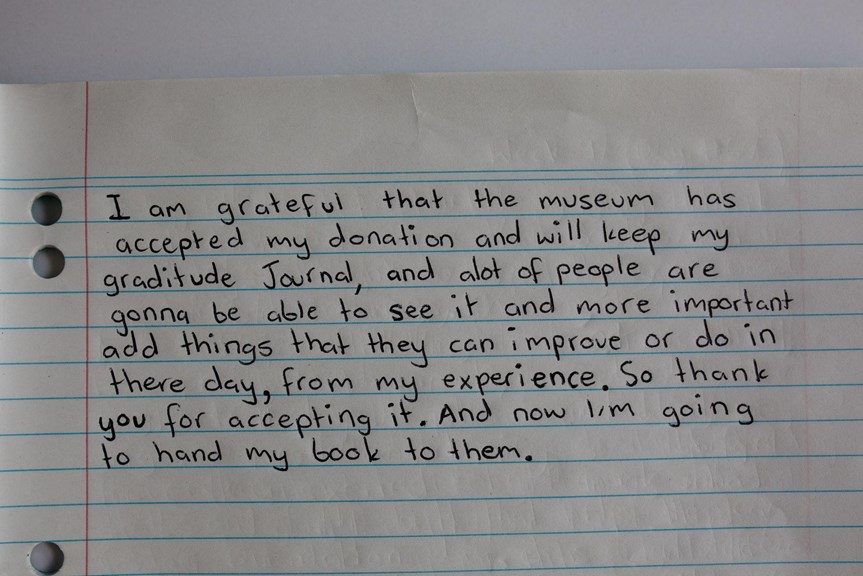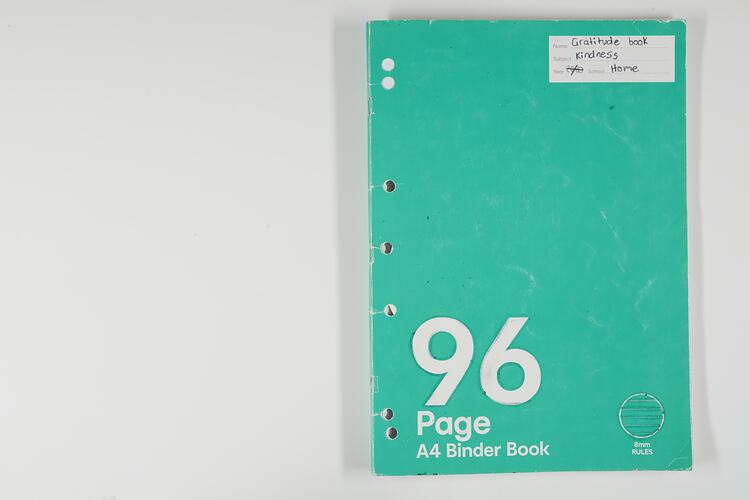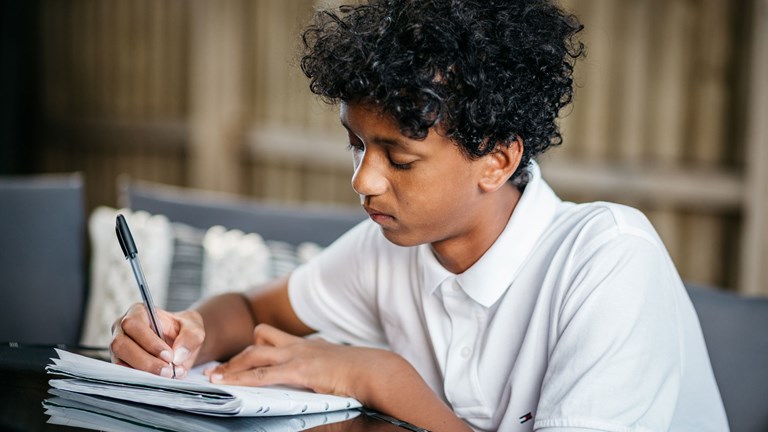
Kofi Kindness
The Gratitude Journal
In July 2020, things were looking grim for Victorians. Melbourne was deep into its second wave of COVID-19 with the State of Victoria undergoing a series of staged restrictions, “Stay at Home” mandates and closures of schools, businesses and non-essential services. Coronavirus cases were skyrocketing and a stricter, longer lockdown was imminent.
Amid the uncertainty and despair circulating online, youth worker and public speaker Abdi Aden posted a photo of his thirteen-year-old son Kofi’s Gratitude Journal to “The Kindness Pandemic” Facebook page. Kofi’s entry read: 'I am grateful for my parents, because they are always there to help me with whatever I need help with. They have done so much in the 13 years and 31 days I have been on this earth. And I look forward to the … years that I will experience with the two of you.
Within hours, the post had received thousands of likes, dozens of shares and hundreds of comments. ‘I am grateful for kids like you who can make our future amazing!’ one person exclaimed, another adding, ‘You remind me that there is still HOPE for our world. Thanks Kofi.’ Many more commented about what they were personally grateful for. Neither Kofi nor his father had anticipated such a large response.
Living with his family in the north-western suburbs of Melbourne, Kofi Aden had spent the first months of COVID-19 lockdown at home with his two brothers, his father Abdi, and his mother Angela, an aged care nurse. Like many children and teenagers across Melbourne, Kofi had grappled with the challenges of home-schooling, as well as missing his friends, classmates and regular social and sporting activities. ‘The main change was my routine and the routine of our home,’ recalls Kofi. ‘I was unable to play basketball and see other people in general.’ His father remarked at the time, ‘It is good that we are all healthy and are coping with the lockdown. It is hard as we do not know what will happen and how to prepare.’
In April 2020, Kofi appeared in a series of online videos filmed by his dad to connect with migrant communities. ‘I asked Kofi to do a promotional video for face mask awareness as this was a really important message,’ Abdi explains. ‘I [had also] been doing regular informational videos for the Somali community such as wear a mask, how to get tested, and where to go for assistance when needed.’ As Kofi writes on “The Kindness Pandemic” website, the appreciative feedback from the mask-awareness videos ‘encouraged my dad and me to discuss further acts of kindness during [COVID-19].'
'We decided it was important to be thankful for the moments, small acts of kindness or everyday events.’Kofi Aden
Inspired by the scientific theory that it takes 66 days to form a new habit, Kofi decided to keep a Gratitude Journal for 66 days and share his entries with the general public to motivate others. ‘I am hoping to stay positive,’ he reflects, ‘and I think the Gratitude Journal is a great way to do this.’
‘And from there it was not hard to make a decision,’ adds Abdi, referring to sharing the Gratitude Journal online. ‘It is a really great habit to create and makes other people feel good when times are difficult.’ What’s more, keeping the journal became a way for Kofi to maintain focus and consistency in changing times. ‘We as a family started to create a new routine and made that our normal,’ he says.
From July through to November, Kofi’s handwritten journal entries became a recurring feature in “The Kindness Pandemic”, with some 70+ posts discussing his day-to-day reflections, and the experiences of his family, neighbourhood and the broader community. His posts were reached by tens of thousands of people, sparking hundreds of conversations and inspiring many people to start writing their own journals.
Founded by aged care advocate and academic Dr Catherine Barrett in March 2020, “The Kindness Pandemic” was set up to provide support to those whose lives were being impacted by COVID-19, particularly people from vulnerable or marginalised backgrounds. The group grew to over 500,000 members in just two weeks and became a virtual meeting place where Kofi and others could share their experiences.
The beauty of Kofi’s journal entries lies in their sincerity and simplicity. They come from the heart and are a celebration of those everyday things in life we often take for granted, such as sunny weather or the company of our pets. Kofi’s gratitude posts shone light on the national heroes of COVID-19 such as health care and frontline workers (like his own mum), or teachers and their support of students in the transition to remote learning. Yet Kofi also gave thanks for the factors that directly improved his life such as the environment, being tall (thanks to good genes from Dad!), his grandma’s amazing vegetable garden, his aunty (who sent the family doughnuts), sports and his passion for the NBA (National Basketball Association), new books, his drama teacher (who made the class fun even though drama isn’t Kofi’s thing), and his two older brothers (even though they sometimes beat him at basketball).
Beyond documenting Kofi’s experience of day-to-day life during COVID-19 lockdowns, the Gratitude Journal also reflects a wider story of migration, cultural identity and community volunteerism. Kofi’s daily reflections were inspired, in part, by his father, who fled the Somalian civil war at the age of 15, not much older than Kofi. Along with sixty other refugees, Abdi travelled for four months across the country from Mogadishu to refugee camps in Kenya. En route, Abdi’s group were stalked by death squads, and subjected to disease, starvation and the multitude dangers of war. All but five members of the group made it to Kenya alive, Abdi one of them. Despite attempts to locate his family at great personal risk, Abdi had to make his way alone out of Somalia to Romania, then Germany, before eventually seeking asylum in Melbourne in 1992.
With no close friends or family, and limited English, Abdi worked hard to make a life for himself in Australia. His optimism and focus helped him graduate secondary school, and he went on to earn a tertiary qualification in community development. In 2020, when the COVID-19 pandemic reached Australia, Abdi was working as a youth worker, community activist, motivational speaker and author, and quickly turned his energies towards supporting members of the Somali and refugee community through the challenges of lockdown. ‘The word community means everything to me,’ Abdi says.
‘People helping each other is so important. I try to practice community living every day.’Abdi Aden
With this in mind, Kofi and his father became involved in helping organise food donations and relief packages for communities in need, including giving assistance to residents of the Flemington and North Melbourne towers during the hard lockdowns of nine public housing estates in Melbourne’s inner-north in July 2020.
The widespread public response to Kofi’s Gratitude Journal highlights the crucial role that social media and the Internet has played during the course of the pandemic. Providing a platform for virtual connection when physical connection isn’t viable has been a lifeline for millions. Kofi’s influence on the online community is also testament to the power of storytelling, and how it can prove mutually beneficial to storyteller and listener alike.
‘I decided to share the Gratitude Journal as I started to believe it would help everyone’.'Kofi Aden
‘The response has been amazing', reflects Kofi. 'I loved reading everyone’s messages, and especially their own gratitude journals.’ Certainly, gratitude and kindness are important values in times of hardship, but what Kofi teaches us is that they can and should extend to everyday life as well, something that was impressed upon him from an early age: ‘My parents both came from challenging backgrounds and they really have taught my brothers and I to be grateful for our family rather than anything you have to buy.’
Kofi’s father Abdi continues to be optimistic: ‘As a refugee I lost everything including family, belongings, culture and identity,’ he says. ‘As a public speaker and author, I [met] so many kind people who are so encouraging. People are often amazed by what I have achieved and that has enlightened the need to be grateful. Times are hard, however, there are so many things we should be grateful for every day including food and clean water.'
'Life can be a winding road and not every bend is easy, however, the view at the end is always worth it as life is beautiful.'Abdi Aden
'My advice to Kofi during these times is to learn to adapt to our rapidly changing world. Creating resilience by [ensuring] we are open about the challenges now and ahead of us.’
As for what Kofi is most keen to do post-lockdown? ‘The thing I am looking forward to most is getting back to basketball!’ he emphasises. ‘However, [seeing] family and friends is just as important.’
With the support of the Office for Suburban Development, this story and photographs – along with Kofi’s Gratitude Journal – have been acquired into Museum Victoria’s State Collection. They will provide a lasting reminder of the experiences of teenagers and students during COVID-19, as well as representing a deeper family story of migration, cultural identity and community volunteerism.
This story was collected by Catherine Forge and written by Charlotte Callander and Sam Bateman in collaboration with Abdi and Kofi Aden.
